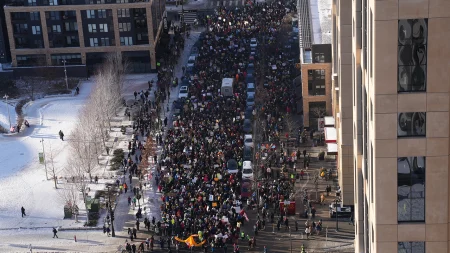After Months of Uncertainty, Family of Itay Chen Finds Closure as Remains Return to Israel
A Nation’s Grief and a Family’s Long Wait for Certainty
In the soft glow of a Jerusalem evening last March, the Chen family received the news that would forever alter their lives. Israeli military officials arrived at their home with intelligence suggesting their son Itay, a dual American-Israeli citizen serving in the Israel Defense Forces (IDF), had likely been killed during the devastating Hamas attacks of October 7, 2023. Despite this devastating assessment, the family found themselves suspended in an agonizing limbo—unwilling to fully embrace their grief until they could bring their son home. “How do you mourn someone when you don’t have absolute certainty?” reflected Itay’s father, Ruby Chen, during a recent interview. “We lived between hope and despair for months, unable to begin the healing process that comes with closure.”
The October 7 attacks, which claimed over 1,200 lives and led to approximately 250 hostages being taken into Gaza, represented the deadliest day for Israeli civilians in the nation’s history. Among those initially listed as missing was 19-year-old Itay Chen, a bright, promising soldier whose dual citizenship placed him at the center of both American and Israeli diplomatic efforts to locate hostages and recover remains of the fallen. For nearly five months, the Chen family navigated a complex emotional landscape—clinging to diminishing hopes while preparing for the worst possible news. Military intelligence suggested Itay had perished during the initial assault on his base near the Gaza border, but without physical confirmation, his family remained caught in what Ruby Chen described as “an emotional purgatory that no parent should ever experience.”
International Diplomacy and the Search for the Missing
The search for Itay and other missing dual citizens quickly became a focal point of international diplomacy, with U.S. Secretary of State Antony Blinken personally reaching out to the Chen family during his multiple visits to Israel. “We understand your pain and we are doing everything in our power to bring clarity and closure,” Blinken reportedly told the family during one such visit. The case highlighted the complex geopolitical dimensions of the conflict, with American officials emphasizing the importance of recovering all U.S. citizens, whether alive as hostages or deceased. President Biden referenced Itay’s case specifically in several addresses, underscoring the administration’s commitment to supporting affected American families.
Behind the scenes, a complex network of intelligence operations, diplomatic negotiations, and humanitarian efforts worked tirelessly to account for all those missing after the October attacks. Israeli intelligence agencies collaborated with international partners, including specialized American teams, to analyze evidence from the attack sites and gather information from multiple sources. For the Chen family, these efforts represented both hope and heartbreak—each development potentially bringing them closer to definitive news about their son’s fate. “The waiting becomes its own form of torture,” explained Dr. Sarah Levine, a trauma specialist who has worked with families of missing persons. “There’s a psychological phenomenon called ‘ambiguous loss’ where the uncertainty prevents the natural grieving process from progressing. Families like the Chens exist in a state of suspended animation, unable to move forward without resolution.”
The Psychological Toll of Ambiguous Loss
The phenomenon of ambiguous loss has been well-documented in conflict zones worldwide, but rarely has it affected so many families simultaneously as in the aftermath of October 7. For the Chens and dozens of other families, the absence of definitive information created what psychologists describe as “frozen grief”—a state where normal mourning rituals and emotional processing remain inaccessible. “In Jewish tradition, the rituals of mourning—shiva, shloshim, saying Kaddish—these provide structure and community support during the most difficult times,” explained Rabbi David Wolpe, who has counseled several families of October 7 victims. “When you cannot begin these rituals because you’re still holding onto hope, however slim, the psychological burden becomes almost unbearable.”
Throughout the agonizing months of waiting, the Chen family established a careful balance—acknowledging the increasingly likely possibility that Itay had perished while steadfastly refusing to abandon hope without conclusive evidence. They participated in advocacy groups for hostage families, met with government officials, and maintained Itay’s room exactly as he had left it. “There’s a Hebrew concept called ‘safek’—doubt or uncertainty—that governed our lives,” Ruby Chen explained. “Jewish law teaches that in matters of life and death, even the smallest possibility must be treated with the utmost seriousness. So while in our hearts we began to accept what the military had told us, we couldn’t fully surrender to grief until we knew beyond any doubt.”
The Return and the Beginning of Healing
The confirmation finally came last week, when Israeli officials informed the Chen family that Itay’s remains had been recovered during a military operation in Gaza and positively identified through DNA testing. The news, while devastating, provided the certainty the family had been seeking for nearly five months. “There is a strange and terrible relief in finally knowing,” Ruby Chen stated at a brief press conference outside their Jerusalem home. “Now we can properly honor Itay’s memory and begin the sacred process of mourning that our tradition provides.” Within hours of the confirmation, the family began preparations for a military funeral, finally able to implement the rituals that had been denied them during the long months of uncertainty.
The funeral, attended by hundreds of mourners including military officials, government representatives, and fellow soldiers from Itay’s unit, represented both an end and a beginning—the conclusion of the agonizing search and the commencement of the formal grieving process. In accordance with Jewish tradition, the seven-day shiva period began immediately after burial, with the family receiving visitors at their home. “There is comfort in structure,” noted Rabbi Wolpe. “The progression from funeral to shiva to shloshim provides a framework for grief, allowing emotions to be expressed and processed in stages.” For the Chen family, these traditions offer a path forward after months of stasis, though Ruby Chen acknowledged the journey would be neither straight nor easy: “We have been holding our breath for so long. Now we must learn to breathe again, to live with our loss while honoring Itay’s memory and sacrifice.”
National Mourning and Ongoing Conflict
Itay Chen’s story resonates deeply within Israeli society, where military service is universal and the boundary between civilian and soldier often blurs. His dual American-Israeli citizenship also highlights the international dimensions of a conflict that has drawn in diplomatic efforts from around the globe. As the Chen family begins their formal mourning period, dozens of other families remain in the same state of uncertainty that characterized their past five months—waiting for news of loved ones still unaccounted for, whether as hostages or casualties. “Each recovered hostage or identified fallen soldier represents both a personal tragedy and a national moment,” observed political analyst Dahlia Scheindlin. “These individual stories collectively form the narrative of October 7 and its aftermath, shaping how Israeli society processes and responds to the trauma.”
The ongoing military operations in Gaza, aimed partly at recovering hostages and remains, continue to reshape regional dynamics while families wait for resolution. For the Chen family, the confirmation of Itay’s fate represents a painful closure but also a release from the particular agony of uncertainty. “We can now honor him properly,” Ruby Chen said, standing beside the fresh grave marked with the Israeli flag. “We can remember him as he was—brave, kind, full of life—rather than being haunted by questions about his fate.” As they recite Kaddish, the Jewish prayer for the dead, the Chens have finally crossed the threshold from uncertainty to mourning, from the limbo of the missing to the defined territory of grief—a journey that remains ahead for other families still waiting for answers.
In the broader context of the ongoing conflict and its humanitarian consequences, Itay Chen’s story represents both an individual tragedy and a window into the complex human toll of warfare. For families on all sides of the conflict, the impact of violence extends far beyond the immediate casualties, creating ripple effects of trauma that can last for generations. As Israel continues military operations in Gaza and diplomatic efforts focus on securing the release of remaining hostages, stories like Itay’s remind us that behind every statistic and strategic calculation lie individual lives and families forever altered by conflict. The Chen family’s long wait for certainty—and their current journey through grief—mirrors a national process that continues to unfold with each passing day.







